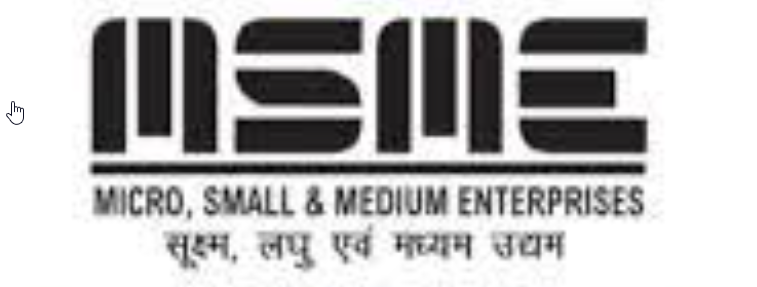Ministry of Micro, Small and Medium Enterprises
The Ministry of Micro, Small and Medium Enterprises (MSME) is a branch of the Government of India that is primarily responsible for promoting, facilitating, and developing micro, small, and medium enterprises in the country. It was formed on 9 May 2007 by merging the former Ministry of Small Scale Industries and the Ministry of Agro and Rural Industries. The ministry is headed by a Cabinet Minister, who is assisted by a Minister of State.
Vision and Mission
The vision of the MSME Ministry is to create a vibrant MSME sector by promoting growth and development of the MSME sector, including Khadi, village, and coir industries, in cooperation with concerned Ministries/Departments, State Governments, and other stakeholders, through providing support to existing enterprises and encouraging the creation of new enterprises.
The mission of the ministry includes:
- Promoting growth and development of MSME sector
- Providing support to existing enterprises
- Encouraging the creation of new enterprises
- Enhancing the competitiveness of MSMEs
- Ensuring a fair deal for MSMEs in the domestic and global market
- Facilitating MSMEs’ access to credit, technology, and markets
Definition of MSMEs
The MSME sector is defined based on the investment in plant and machinery or equipment and annual turnover. As per the Micro, Small and Medium Enterprises Development (MSMED) Act, 2006, the MSMEs are classified as follows:
- Micro Enterprises: Investment up to Rs. 1 crore and turnover up to Rs. 5 crore
- Small Enterprises: Investment up to Rs. 10 crore and turnover up to Rs. 50 crore
- Medium Enterprises: Investment up to Rs. 50 crore and turnover up to Rs. 250 crore
In 2020, the government revised the definition of MSMEs, which came into effect from 1 July 2020. Under the new definition, the distinction between manufacturing and service sectors has been eliminated.
Key Schemes and Initiatives
The MSME Ministry has been implementing several schemes and initiatives to support and promote the growth of MSMEs in India. Some of the key schemes include:
- Prime Minister’s Employment Generation Programme (PMEGP): This is a credit-linked subsidy scheme which promotes self-employment through setting up of micro-enterprises.
- Credit Guarantee Scheme for Micro and Small Enterprises (CGTMSE): This scheme facilitates credit flow to the MSE sector without the need for collaterals/third party guarantees.
- Scheme of Fund for Regeneration of Traditional Industries (SFURTI): This scheme aims to organise traditional industries and artisans into clusters to make them competitive and increase their income.
- A Scheme for Promotion of Innovation, Rural Industry & Entrepreneurship (ASPIRE): This scheme promotes innovation and rural entrepreneurship through rural livelihood incubation centres and technology business incubators.
- Interest Subvention Scheme for Incremental Credit to MSMEs: This scheme provides interest relief to eligible MSMEs on their outstanding fresh/incremental term loan/working capital during the period of its validity.
- CHAMPIONS portal: In 2020, the ministry launched the CHAMPIONS (Creation and Harmonious Application of Modern Processes for Increasing the Output and National Strength) portal, a technology-driven control room-cum-management information system to address the grievances of MSMEs and facilitate their growth.
Contribution to the Economy
The MSME sector plays a vital role in the Indian economy. It contributes significantly to the country’s Gross Domestic Product (GDP), exports, and employment generation. As per the National Sample Survey (NSS) 73rd round, conducted by the National Sample Survey Office, Ministry of Statistics & Programme Implementation, there are an estimated 6.33 crore unincorporated non-agricultural MSMEs in the country, providing employment to 11.09 crore workers.
MSMEs are also significant contributors to India’s exports. As per the Directorate General of Commercial Intelligence and Statistics (DGCI&S) data, the share of MSME related products in total exports from India during 2018-19 was 48.10%.


